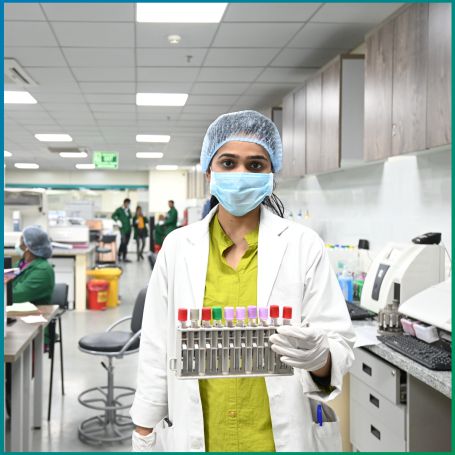
Chikungunya fever is a viral disease transmitted primarily by Aedes mosquitoes, notably Aedes aegypti and Aedes albopictus.

The disease is characterized by sudden onset of fever, joint pain, rash, and muscle aches. In some cases, the joint pain can become debilitating, lasting for months. Given the increasing incidence of Chikungunya outbreaks in tropical and subtropical regions, rapid diagnostic tests have become essential for confirming infection and guiding treatment. One of the most commonly used diagnostic tests is the Chikungunya IgG/IgM test, which detects the presence of antibodies to the Chikungunya virus in the bloodstream.
The Chikungunya IgG/IgM test is typically performed using a blood sample, which can be drawn from a vein (venipuncture) or via a fingerstick for rapid tests. The test may be performed in a laboratory or using point-of-care diagnostic tools, such as lateral flow immunoassays or enzyme-linked immunosorbent assays (ELISA).
1] Rapid Diagnostic Tests (RDTs): These are commonly used in areas with limited access to healthcare facilities or in field settings. They provide quick results within 15-30 minutes, helping healthcare providers make faster decisions.
2] ELISA: This is a more detailed and accurate laboratory test, which can detect the presence of IgM and IgG antibodies more reliably, but results may take a few hours or days.
The interpretation of Chikungunya IgG/IgM test results depends on the timing of the test and the patient's clinical history:
1] Positive IgM, Negative IgG: This result generally indicates a recent infection, with the person likely still within the acute phase of illness.
2] Positive IgM, Positive IgG: This could suggest an ongoing or recent infection, with the person in the later stages of recovery.
3] Negative IgM, Positive IgG: This typically indicates a past infection or exposure to the virus, with immunity developed over time.
4] Negative IgM and IgG: This suggests no detectable antibodies, meaning the person has not been infected by the virus or is within the early stages of infection (before antibodies have developed).
You should choose best diagnostic centre in Pune for your CHIKUNGUNIYA IGG/IGM test because we are committed to providing high-quality diagnostic care in a clean and hygienic environment. Our center is equipped with advanced technology to ensure accurate and reliable test results, which are crucial for assessing this test. Diagnopein’s experienced staff is dedicated to handling tests with precision and care, offering you both expertise and comfort. We also offer affordable pricing, making essential health diagnostics accessible without compromising quality. For timely, professional, and affordable cardiac testing, Diagnopein is your trusted partner for your healthcare.
1. IgG Chickengunia
2. IgM Chikengunya
A blood sample is collected, either from a vein (venipuncture) or via a fingerstick, and tested in a lab or using a rapid diagnostic test.
Yes, it is commonly used in areas with ongoing Chikungunya outbreaks to confirm infection and guide treatment.
Yes, the test can produce false negatives in early infection stages or false positives due to cross-reactivity with other viruses like Dengue or Zika.